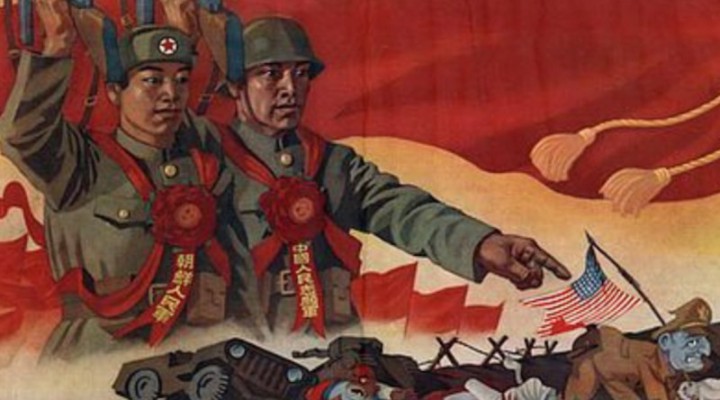China updates its ‘Art of (Hybrid) War’

In 1999, Qiao Liang, then a senior air force colonel in the People’s Liberation Army, and Wang Xiangsui, another senior colonel, caused a tremendous uproar with the publication of Unrestricted Warfare: China’s Master Plan to Destroy America.
Unrestricted Warfare was essentially the PLA’s manual for asymmetric warfare: an updating of Sun Tzu’s Art of War. At the time of original publication, with China still a long way from its current geopolitical and geo-economic clout, the book was conceived as laying out a defensive approach, far from the sensationalist “destroy America” added to the title for US publication in 2004.
Now the book is available in a new edition and Qiao Liang, as a retired general and director of the Council for Research on National Security, has resurfaced in a quite revealing interview originally published in the current edition of the Hong Kong-based magazine Zijing (Bauhinia).
General Qiao is not a Politburo member entitled to dictate official policy. But some analysts I talked with agree that the key points he makes in a personal capacity are quite revealing of PLA thinking. Let’s review some of the highlights.
Dancing with wolves
The bulk of his argument concentrates on the shortcomings of US manufacturing: “How can the US today want to wage war against the biggest manufacturing power in the world while its own industry is hollowed out?”
An example, referring to Covid-19, is the capacity to produce ventilators: “Out of over 1,400 pieces necessary for a ventilator, over 1,100 must be produced in China, including final assembly. That’s the US problem today. They have state of the art technology, but not the methods and production capacity. So they have to rely on Chinese production.”
General Qiao dismisses the possibility that Vietnam, the Philippines, Bangladesh, India and other Asian nations may replace China’s cheap workforce: “Think about which of these countries has more skilled workers than China. What quantity of medium and high level human resources was produced in China in these past 30 years? Which country is educating over 100 million students at secondary and university levels? The energy of all these people is still far from being liberated for China’s economic development.”
He acknowledges US military power even in times of epidemic and economic difficulties is always capable of “interfering directly or indirectly in the Taiwan straits question” and finding an excuse to “block and sanction China and exclude it from the West.” He adds that, “as a producing country, we still cannot satisfy our manufacturing industry with our own resources and rely on our own markets to consume our products.”
In consequence, he argues, it’s a “good thing” for China to engage in the cause of reunification, “but it’s always a bad thing if it’s done at the wrong time. We can only act at the right time. We cannot allow our generation to commit the sin of interrupting the process of the Chinese nation’s renaissance.”
General Qiao counsels, “Don’t think that only territorial sovereignty is linked to the fundamental interests of a nation. Other kinds of sovereignty – economic, financial, defense, food, resources, biological and cultural sovereignty – are all linked to the interests and survival of nations and are components of national sovereignty.”
To arrest movement toward Taiwan’s independence, “apart from war, other options must be taken into consideration. We can think about the means to act in the immense gray zone between war and peace, and we can even think about more particular means, like launching military operations that will not lead to war, but may involve a moderate use of force.”
In a graphic formulation, General Qiao thinks that, “if we have to dance with the wolves, we should not dance to the rhythm of the US. We should have our own rhythm, and even try to break their rhythm, to minimize its influence. If American power is brandishing its stick, it’s because it has fallen into a trap.”
In a nutshell, for General Qiao, “China first of all must show proof of strategic determination to solve the Taiwan question, and then strategic patience. Of course, the premise is that we should develop and maintain our strategic force to solve the Taiwan question by force at any moment.”
Gloves are off
Now compare General Qiao’s analysis with the by now obvious geopolitical and geo-economic fact that Beijing will respond tit for tat to any hybrid war tactics deployed by the United States government. The gloves are definitely off.
The gold standard expression has come in a no-holds barred Global Times editorial: “We must be clear that coping with US suppression will be the key focus of China’s national strategy. We should enhance cooperation with most countries. The US is expected to contain China’s international front lines, and we must knock out this US plot and make China-US rivalry a process of US self-isolation.”
 TheAltWorld
TheAltWorld 








0 thoughts on “China updates its ‘Art of (Hybrid) War’”